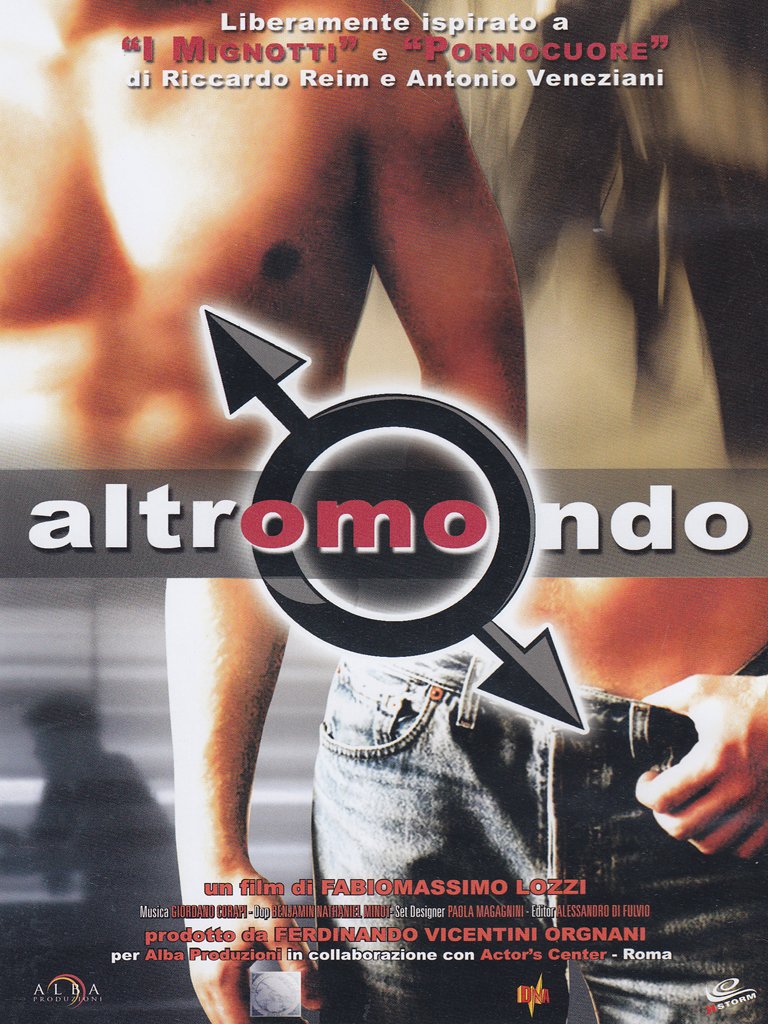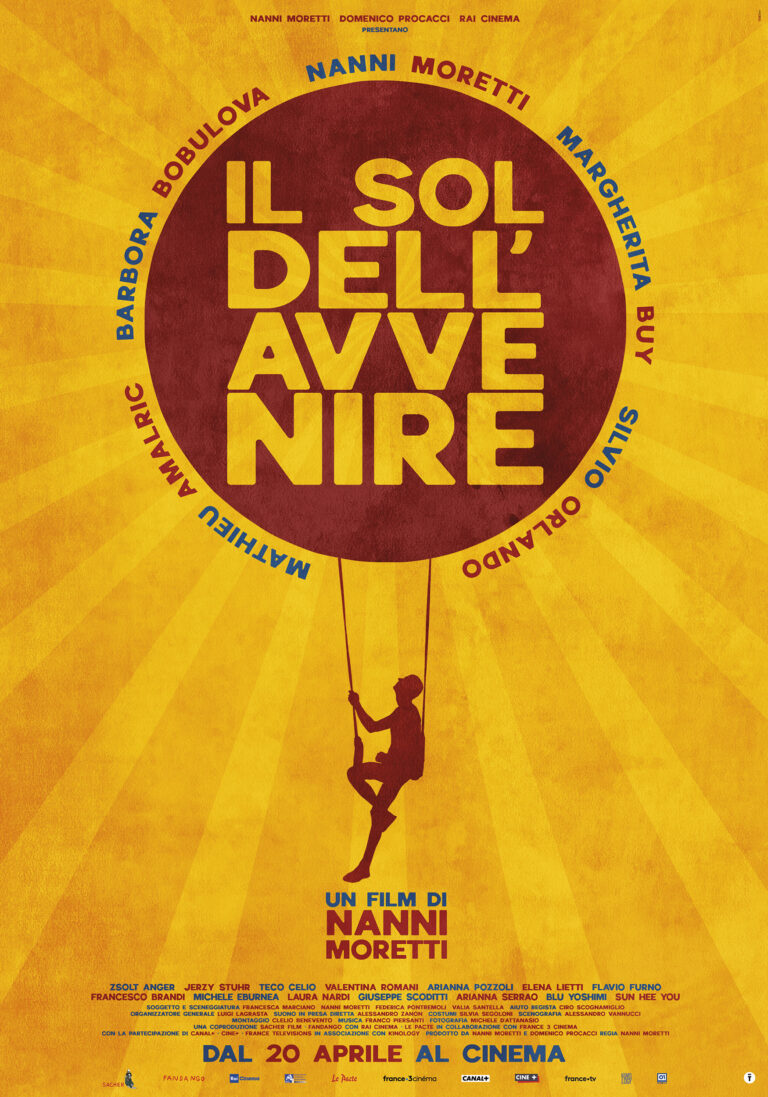
Introduction
“Anotherworld – Altromondo” is a groundbreaking Italian drama released in 2008 and directed by Fabiomassimo Lozzi. Known for its unconventional storytelling, the film is composed entirely of monologues, each revealing deeply personal stories about male homosexuality. This experimental approach brings attention to the complexities of self-discovery, acceptance, and human connection within the LGBTQ+ community. Through a mosaic of voices, the film offers a profound look into the universal human quest for identity and belonging.
The Vision of Director Fabiomassimo Lozzi
Fabiomassimo Lozzi’s Artistic Legacy
Fabiomassimo Lozzi, the visionary director of “Anotherworld,” is renowned for his innovative narrative techniques and commitment to representing marginalized voices. With a background in theater and a passion for avant-garde storytelling, Lozzi draws inspiration from real-life interviews with gay men in Italy. By transforming these interviews into monologues, he creates an authentic and unfiltered portrayal of their struggles and triumphs. The film becomes a platform for exploring themes often ignored or misunderstood in mainstream cinema.
Inspiration Behind “Anotherworld”
Lozzi’s decision to structure the film around monologues stems from his desire to humanize the personal stories of gay men. The idea of adapting genuine interviews into cinematic narratives reflects his dedication to authenticity, ensuring that each story retains its emotional truth while connecting with broader audiences.
Narrative Structure and Themes
A Unique Format of Monologues
The structure of “Anotherworld” is its most distinctive feature. Unlike traditional films with a linear plot, it is composed of individual monologues delivered by a diverse ensemble of characters. Each monologue presents a unique perspective on male homosexuality, addressing themes such as coming out, societal judgment, internalized homophobia, and the search for love. This fragmented yet cohesive narrative approach invites viewers to connect with the raw emotions and vulnerabilities of the characters.
Exploration of Core Themes
Through its personal stories, “Anotherworld” explores universal themes of identity, love, and belonging. The film provides a powerful commentary on societal pressures, the courage of self-acceptance, and the resilience needed to navigate a world often unaccepting of differences.
The Cast and Their Performances
Lead Performances
The cast of “Anotherworld” includes an impressive array of talent, with standout performances by Francesco Apolloni, Mirko Batoni, and Andrea Bosca. Their portrayals bring authenticity and depth to the stories, making each character’s journey relatable and impactful. The actors capture the rawness of emotion, immersing viewers into the struggles and triumphs of their characters.
Supporting Cast Contributions
Supporting actors like Stefano Fregni and Riccardo Francia further enrich the film, adding layers of nuance to its emotional and thematic complexity. Each actor’s performance is a testament to the power of storytelling through simplicity, as the film relies heavily on dialogue and expression.
Visual and Technical Aspects
Filming Locations and Atmosphere
The film’s production emphasizes intimacy and authenticity. Shot in various locations across Italy, the settings are deliberately understated, allowing the focus to remain on the characters and their stories. This choice reinforces the personal and introspective nature of the film.
Cinematography and Aesthetic Choices
Benjamin Nathaniel Minot’s cinematography complements the minimalist vision of “Anotherworld.” By focusing on close-ups and natural lighting, the visuals enhance the emotional impact of the monologues, keeping the audience engaged with the raw storytelling.
Reception and Cultural Impact
Critical Reception
Upon its release, “Anotherworld” sparked mixed reactions from critics. Many praised its bold narrative structure and authentic performances, while others found the absence of a conventional plot challenging. Despite the divided opinions, the film was widely recognized for its innovative storytelling and its contribution to the representation of LGBTQ+ experiences in cinema.
Representation of LGBTQ+ Issues
“Anotherworld” has played a significant role in advancing LGBTQ+ representation in Italian cinema. By portraying diverse experiences of gay men, the film has helped foster empathy and understanding, challenging stereotypes and encouraging conversations about acceptance.
Soundtrack and Music
Composer Giordano Corapi’s Influence
The soundtrack, composed by Giordano Corapi, plays a pivotal role in setting the film’s tone. Corapi’s compositions are subtle yet impactful, underscoring the film’s themes without overpowering the dialogue. The music enhances the introspective atmosphere, aligning perfectly with the monologues’ emotional depth.
Production Challenges and Behind-the-Scenes Insights
Bringing “Anotherworld” to life was not without its challenges. Lozzi faced the task of balancing the authenticity of real-life interviews with the constraints of cinematic storytelling. The director’s commentary provides valuable insights into this process, highlighting his meticulous efforts to maintain the integrity of the original narratives.
Comparisons to Similar Films
When compared to other films exploring LGBTQ+ themes, “Anotherworld” stands out for its unique format and focus on authenticity. While many films use traditional narratives to address similar issues, Lozzi’s approach highlights the individuality of each story, making the film a deeply personal and introspective experience.
Audience Interpretation and Legacy
Viewer Perspectives
Audiences have interpreted the film in various ways, often discussing its symbolism and the emotional resonance of its characters’ journeys. Some see the monologues as reflections of universal struggles, while others view them as a celebration of individuality and resilience. This diversity of interpretations underscores the film’s depth and its ability to connect with viewers on a personal level.
A Lasting Legacy in Cinema
In conclusion, “Anotherworld – Altromondo” is a bold and thought-provoking exploration of male homosexuality and human identity. Through its innovative structure, authentic performances, and emotional depth, it offers a compelling narrative that challenges traditional storytelling norms. The film’s cultural and artistic significance extends far beyond its immediate reception, cementing its place as a landmark work in Italian cinema. Its legacy continues to inspire conversations about acceptance, representation, and the power of storytelling in fostering empathy and understanding.





